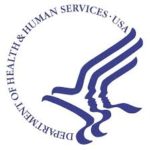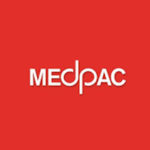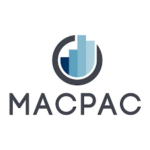The following is the latest health policy news from the federal government for March 15-21. Some of the language used below is taken directly from government documents.
 The White House
The White House
The White House has announced new actions to advance women’s health research and innovation and issued an executive order in support of that objective. The order directs executive branch agencies to integrate women’s health across the federal research portfolio; prioritize investments in women’s health research; pursue new research on women’s midlife health; and assess unmet needs to support women’s health research. Learn more from this White House fact sheet, which elaborates on specific actions in support of these objectives, and the executive order.
Congress
- On March 21, lawmakers released their package of the remaining six spending bills for FY 2024, including the bill that funds the Department of Health and Human Services. Some details on health care spending from the package include:
- Increased funding to NIH for research on cancer, Alzheimer’s, and diabetes. No funding for the 21st Century Cures Act and flat funding for the Advanced Research Projects Agency for Health (ARPA-H).
- An $18 million increase for the suicide prevention/mental health crisis line (9-8-8).
- A $23 million increase for The Organ Procurement and Transplantation Network Modernization Initiative.
- It claws back $4.3 billion in Covid-19 funding.
- It calls for $3 million for the Office of the National Coordinator for Health IT to “work with industry to develop matching standards that prioritize interoperability, patient safety, and patient privacy.”
- It provides funding for rural health grants.
- It directs $125 million to the State Department to counter the flow of illicit fentanyl and the chemicals used to manufacture it and other synthetic drugs into the U.S.
Under the current continuing resolution, funding for the accounts covered by the six bills in this minibus package will expire at 12:00 a.m. on Saturday. The House is expected to vote on this bill tomorrow and the Senate may not be able to vote on the bill until the weekend, which means some parts of the federal government may experience a brief shutdown. If there is a temporary partial shutdown it is expected to have a limited effect on most health care functions.
Find the bill text here.
- The Republican Study Committee released its FY 2025 budget proposal, a non-binding policy wish list. Some of the health policy proposals include:
- Eliminating Medicare’s ability to negotiate prescription drug prices.
- Implementing Medicare site-neutral payment policies.
- Reforming Graduate Medical Education (GME) payments.
- Eliminating Affordable Care Act (ACA) protections for preexisting conditions.
- Eliminating enhanced ACA tax credits.
- Converting Medicaid and CHIP into block grants.
Find the Republican Study Committee FY 2025 budget proposal here.
 The Cyberattack on Change Healthcare
The Cyberattack on Change Healthcare
- CMS announced new flexibilities to help state Medicaid agencies provide relief to Medicaid providers and protect access to care in the wake of the cyberattack on Change Healthcare. Now, states can start making interim payments to providers affected by the incident. CMS is encouraging states to submit Medicaid state plan amendments for authority to make certain interim payments for services providers have rendered but for which the provider cannot submit claims. To support states considering this option CMS has released guidance on related flexibilities, including the option for states to start making interim payments retroactively to the date when claims payment processing was disrupted due to the cybersecurity incident and to begin drawing down federal Medicaid matching funds as soon as the state submits an appropriate Medicaid state plan amendment. Learn more about CMS’s Medicaid-related actions from this CMS statement and go here to find the guidance CMS has sent to state Medicaid agencies, which includes a discussion of state requirements CMS does not intend to enforce under the current circumstances.
- On Monday, March 18, HHS leaders met with White House staff and health care payers to discuss concrete actions to mitigate harm to patients and providers caused by the cyberattack on Change Healthcare. Learn more about what was discussed and who participated in the meeting from this HHS news release.
 Centers for Medicare & Medicaid Services
Centers for Medicare & Medicaid Services
- CMS and its Center for Medicare and Medicaid Innovation are introducing a new voluntary model that empowers primary care providers in eligible accountable care organizations (ACOs) to treat Medicare patients using innovative, team-based, person-centered care. The ACO Primary Care Flex Model (ACO PC Flex Model) will provide a one-time advance shared savings payment and monthly prospective primary care payments to participating ACOs. The purpose of those advance shared savings payments is to provide ACOs with needed resources and flexibility to cover costs associated with forming an ACO (where relevant) and administrative costs for required model activities. These payments will be distributed by ACOs to primary care practices, giving them improved resources and flexibility to provide care that best suits their members’ needs. The model is designed to incorporate health equity and address health disparities in primary care. Learn more about the ACO PC Flex Model from this HHS news release; this CMS fact sheet; and this FAQ.
- CMS intends to release an ACO PC Flex Model Request for Applications in the second quarter of 2024 and anticipates that applications will be due in early August 2024. CMS plans to select approximately 130 ACOs to participate.
- CMS has reminded providers that their Medicare Administrative Contractors will accept the current electronic funds transfer form only through April 30 and that beginning on May 1 providers must use the revised form. Find the revised form and instructions here.
- CMS has published a bulletin describing Medicare claims processing manual updates addressing HCPCS billing codes and advance beneficiary notice of non-coverage requirements for certain preventive health services. Find the bulletin here.
- CMS has published a bulletin announcing changes in the July 2024 quarterly release of the lab edit module for clinical diagnostic laboratory services. Find that bulletin here. The changes take effect on July 1.
- CMS has published a health-related social needs FAQ about four services in the 2024 Physician Fee Schedule final rule: caregiver training, social determinants of health risk assessment, community health integration, and principal illness navigation. Find that FAQ here.
- CMS has sent a memo to state Medicaid agencies with reminders about conducting Medicaid and CHIP renewals during the Medicaid unwinding period, with an emphasis on circumstances under which they should not terminate Medicaid eligibility. Find that memo here. CMS supports this memo with a slide deck that presents examples of processes not permitted under Medicaid and CHIP renewal requirements. Find that slide deck here.
 Department of Health and Human Services
Department of Health and Human Services
- HHS’s Agency for Healthcare Research and Quality’s (AHRQ) intends to publish a Notice of Funding Opportunity inviting applications to support expanding research and evidence in primary care. AHRQ is interested in applications to build evidence about the characteristics and value of primary care that influence patient outcomes and advance health equity, such as care coordination, continuity of care, comprehensiveness of care, person-centered whole health care, and trust. AHRQ is interested in research that explores how these can be improved, measured, and effectively delivered to strengthen primary care across the lifespan. Learn more from this notice of intent to publish a funding opportunity announcement. AHRQ plans to publish this notice in the spring, with proposals to be due in the summer.
- HHS’s Office of Civil Rights has issued a bulletin updating its guidance on HIPAA-covered entities and their business associates when using online tracking technologies. The guidance explains that regulated entities are not permitted to use tracking technologies in a manner that would result in impermissible disclosures to tracking technology vendors of protected health information or any other violations of HIPAA rules. Learn more from this HHS notice.
- HHS’s Office of the Inspector General has posted resources presenting its perspective on the potential risks and concerns of the use of managed care in Medicare and Medicaid. Find a guide to those resources here.
- HHS’s Health Care Cybersecurity Coordination Center and its Office of Information Security have issued a health sector alert about defense and mitigation from e-mail bombing. E-mail bombing occurs when a botnet floods an e-mail address or server with hundreds or thousands of e-mail messages. By overloading a victim’s inbox, attackers hope a victim will miss important e-mails like account sign-in attempts, updates to contact information, financial transaction details, or online order confirmations. This type of attack is of particular concern to the health care and public health sector because in 2016 such an attack was launched against .gov email addresses that affected both those that have those addresses and those that use the same servers, affecting many health care entities in the process. Learn more from this HHS sector alert.
HHS Newsletters
- CMS – MLN Connects – March 21
- CMS – Expanded Home Health Value-Based Purchasing Model quarterly newsletter
- AHRQ News Now – March 19
- HRSA eNews – March 7
- HRSA – February in Brief
- HHS Health Care Cybersecurity Coordination Center and its Office of Information Security – monthly cybersecurity vulnerability bulletin for February
 Medicare Payment Advisory Commission (MedPAC)
Medicare Payment Advisory Commission (MedPAC)
- In its annual report to Congress, MedPAC has recommended the following changes in Medicare rates for 2025:
- Medicare inpatient rates – the rate increase currently scheduled by law for 2025 plus 1.5 percent.
- Medicare outpatient rates – the rate increase currently scheduled by law for 2025 plus 1.5 percent.
- Medicare physician rates – the rate increase for physicians and other clinicians currently scheduled by law plus 50 percent of the projected increase in the Medicare Economic Index.
- Medicare skilled nursing facility rates – a three percent reduction from 2024 rates.
- Medicare inpatient rehabilitation facility rates – a five percent reduction from 2024 rates.
- Medicare home health services rates – a seven percent reduction from 2024 rates.
- Medicare outpatient dialysis rates – the rate increase currently scheduled by law.
- Medicare hospice services – the scheduled rate increase for 2025 should be eliminated.
MedPAC no longer makes rate recommendations for long-term-care hospitals and now declines to make recommendations for ambulatory surgical centers as well, for the latter citing the lack of cost data from such facilities that it has asked the Department of Health and Human Services to require of ambulatory surgical centers since 2022.
As part of its recommendations for hospitals and physicians, MedPAC reiterated its 2022 proposal to establish a new Medicare Safety-Net Index that would redistribute some current safety-net hospital resources, supplemented by an additional $4 billion, and increase payments to hospitals it deems safety-net hospitals based on its own “Medicare Safety-Net Index” while also increasing payments to clinicians who care for especially large numbers of low-income Medicare beneficiaries served under the program’s fee-for-service program.
In addition to offering rate recommendations, MedPAC’s annual report reviews the status of ambulatory surgical centers, Medicare Advantage, and the Medicare Part D prescription drug program and responds to congressional mandates for a review of special needs plans for dually eligible Medicare and Medicaid individuals and its perspectives on the new Medicare “rural emergency hospital” concept.
Learn more from MedPAC’s report to Congress and the news release that accompanies it.
- MedPAC has published a report it commissioned about estimating variation in stay-level and facility-level profitability in Medicare’s inpatient rehabilitation facility payment system. Find the report here.
- MedPAC has published a report it commissioned featuring interviews with acute-care hospital discharge planners about inpatient rehabilitation facility and skilled nursing facility placement. Find the report here.
 Medicaid and CHIP Payment and Access Commission (MACPAC)
Medicaid and CHIP Payment and Access Commission (MACPAC)
MACPAC has issued its annual report to Congress. This year’s report primarily addresses three issues:
- How state Medicaid agencies can improve beneficiary engagement with state medical care advisory committees and what the federal government can do to facilitate that engagement.
- The current process for monitoring and overseeing denials of care and appeals of those denials by Medicaid managed care plans and how states and the federal government can improve those processes and make them more transparent.
- MACPAC’s annual review of Medicaid disproportionate share (Medicaid DSH) allotments to states.
Learn more about what MACPAC had to say about these and other issues from MACPAC’s annual report to Congress.
Centers for Disease Control and Prevention
- The CDC has published resources to help hospital executives improve the well-being of hospital workers. The guide builds upon existing research and resources, was informed by conversations with nearly two dozen organizations, including professional organizations, academic institutions, unions, and federal agencies, and was tested for usability by leaders at six hospitals. Find a guide to the resources here.
- The CDC has issued a health alert to inform clinicians and public health officials of an increase in global and U.S. measles cases. The alert documents the extent of the recent increase in measles cases, provides background information about measles, and offers recommendations for prevention, diagnosis, and treatment for providers, public health agencies, and families. Find the alert here.
Government Accountability Office (GAO)
CMS is not adequately monitoring the quality and access of Medicaid managed care services, the GAO has concluded in a new report. While CMS has taken steps toward doing so by requiring states to submit data on care denials and appeals, the GAO found, CMS is not making adequate progress toward analyzing this data and making it public. Learn more from the GAO report “Medicaid Managed Care: Additional Federal Action Needed to Fully Leverage New Appeals and Grievances Data.”
 Stakeholder Events
Stakeholder Events
CMS – Interoperability and Prior Authorization Final Rule Education Session – March 26
CMS’s Office of Burden Reduction & Health Informatics will host a virtual education session on Tuesday, March 26 at 1:00 (eastern) on the CMS Interoperability and Prior Authorization final rule. Questions can be submitted beforehand via the registration form. The webinar, according to CMS, will be appropriate for patients, providers, and administrative, health IT, and government affairs professionals. Go here to register to participate and to submit questions you would like addressed during the session.
CMS – Achieving Full Annual Skilled Nursing Facility Annual Update – March 26
CMS will hold a webinar to educate providers about current changes and to help providers learn how to again a full annual update under its Skilled Nursing Facility Quality Reporting Program. The webinar will be held on Tuesday, March 26 at 1:00 (eastern). Go here to learn more about the webinar and to register to participate.
CMS – Overview of the ACO Primary Care Flex Model – April 4
CMS will hold a webinar to present an overview of its new ACO Primary Care Flex Model on Thursday, April 4 at 2:00 (eastern). Go here to register to participate.
HHS – Office of Climate Change and Health Equity – Webinars on Taking Advantage of Provisions in the Inflation Reduction Act –April 4 and 18
HHS’s Office of Climate Change and Health Equity is holding a series of webinars to help health care providers, and especially safety-net organization, take advantage of the tax credits, grants and other supports made available by the Inflation Reduction Act, which creates opportunities for health sector organizations to invest in clean energy, building efficiency, infrastructure resilience, and more. The next webinar will be held on Thursday, February 8, with additional events scheduled on February 22, March 7 and 21, and April 4 and 18. Separate break-out sessions will be held for essential hospitals, community health centers, and rural providers. Go here to learn more about the webinar series, future events, and the break-out sessions; go here for a recording of a November briefing on Inflation Reduction Act resources available to health care providers; and go here to register to participate.
MedPAC – Commissioners Meeting – April 11-12
MedPAC’s commissioners will hold their next public meeting on Thursday, April 11 and Friday, April 12. An agenda and directions on how to participate in the meeting are not yet available but when that information is announced it will be posted here.
MACPAC – Commissioners Meeting – April 11-12
MACPAC’s commissioners will hold their next public meeting on Thursday, April 11 and Friday, April 12. An agenda and directions on how to participate in the meeting are not yet available but when that information is announced it will be posted here.
CMS – Health Equity Conference – May 29-30
CMS will hold its second annual CMS Health Equity Conference on Wednesday, May 29 and Thursday, May 30. The free, hybrid conference will be held in person in Bethesda, Maryland and available online for virtual participation and involve health equity leaders from federal and local agencies, health provider organizations, academia, community-based organizations, and others. Conference participants will hear from CMS leadership on recent developments and updates to CMS programs; explore the latest health equity research; discuss promising practices and creative solutions; and collaborate on community engagement strategies. Go here for information about how to register to participate.

 Centers for Medicare & Medicaid Services
Centers for Medicare & Medicaid Services Stakeholder Events
Stakeholder Events